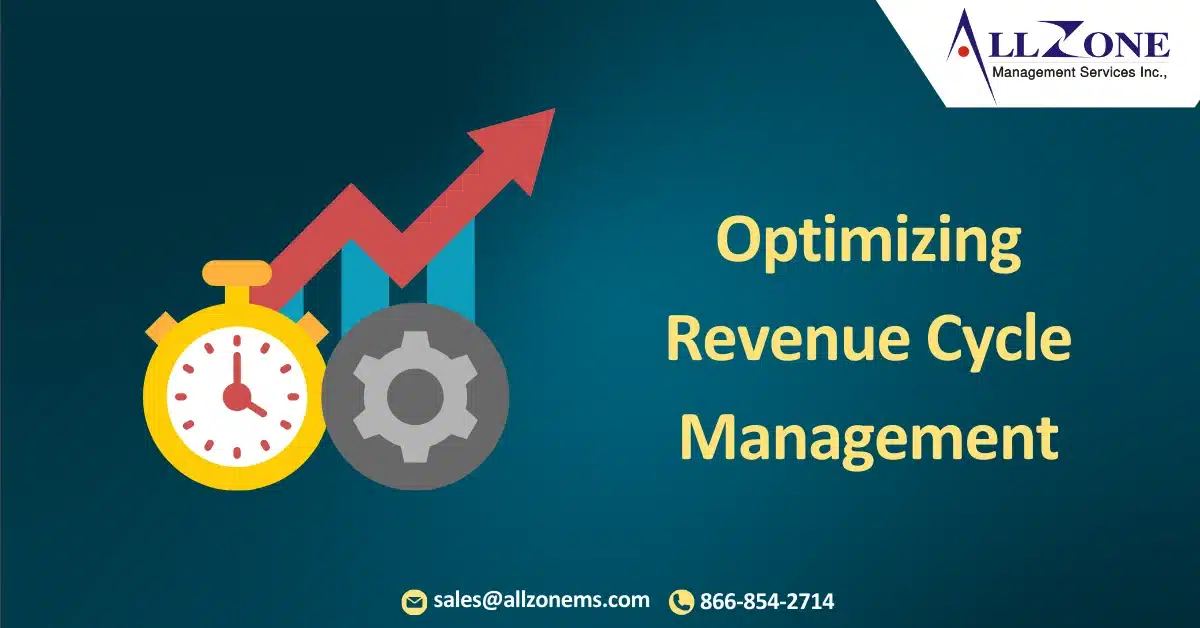The healthcare industry continues to face significant challenges, driven by value-based care initiatives, evolving payer models, and increasingly stringent regulations. To optimize revenue cycle management and ensure financial sustainability, healthcare providers must adapt to these changes .
The COVID-19 pandemic exacerbated these challenges, leading to historically low margins and high costs, particularly in labor. Simultaneously, providers have been confronted with increasingly complex payer contracts and federal regulations, hindering their ability to fully recover.
To thrive in this complex environment, healthcare providers must optimize their revenue cycle processes. By implementing the following strategies, providers can unlock much-needed revenue and secure their financial future.
Leveraging Data and Analytics to Optimize Revenue Cycle
To optimize revenue cycle management, healthcare providers must first identify and address their most significant pain points. Data transparency and predictive analytics are essential tools in this process. By combining business intelligence and artificial intelligence solutions, providers can gain deeper insights into their revenue cycle performance and payer behaviors.
Key Benefits of Data-Driven Insights:
-
- Informed Decision-Making: Comprehensive insights empower providers to make timely and strategic decisions.
- Optimized Resource Allocation: By understanding payer reimbursement patterns, providers can allocate staff resources more effectively. For instance, if a specific payer consistently delays payments until day 14, there’s no need to allocate resources to that account before that time.
- Targeted Claim Denial Mitigation: By identifying the payers with the highest denial rates and the reasons for those denials, providers can implement proactive measures and improve the effectiveness of their appeal processes. This can lead to a significant reduction in denials and increased revenue.
Optimizing Cash Collections: A Strategic Approach
The increasing prevalence of high-deductible health plans (HDHPs) has created significant challenges for both patients and providers. The average annual out-of-pocket costs for a family now exceed $16,100, contributing to a surge in medical debt. In fact, two-thirds of Americans currently have outstanding medical bills, half of which are in collections. To optimize revenue cycle management and mitigate these challenges, healthcare providers must implement innovative solutions, such as patient financial assistance programs and streamlined billing processes.
To address these challenges, providers can implement strategies that both assist patients and streamline the collection process.
Key Strategies for Enhanced Cash Collections:
- Proactive Financial Counseling: By providing patients with accurate estimates of their financial responsibility before their service, providers can educate them about their costs and facilitate timely payments.
- Flexible Payment Plans: Offering customized payment plans based on individual patient circumstances can improve payment compliance. Proactively proposing payment plans demonstrates a commitment to patient care and financial well-being.
- Digital Payment Tools: Empowering patients with digital payment tools, such as patient portals, mobile payments, and automated reminders, can simplify the payment process and increase collection rates.
By adopting these strategies, healthcare providers can improve patient satisfaction, reduce medical debt, and enhance their overall financial performance.
Uncovering Untapped Revenue: Maximizing Financial Performance
Beyond process optimization and enhanced cash collection, healthcare providers can significantly boost their revenue by identifying and capturing missed opportunities.
Key Strategies for Uncovering Untapped Revenue:
Maximizing Contractual Revenue:
-
- Contract Adjudication: Implement robust contract adjudication systems to identify variances between expected and actual reimbursements.
- Data-Driven Insights: Leverage data analytics to pinpoint areas of underpayment and initiate timely appeals.
- Dedicated Teams: Establish specialized teams to focus on contract disputes and work directly with payers to resolve issues.
Optimizing Charge Capture and Coding:
-
- Comprehensive Training: Invest in comprehensive training programs to ensure that staff members are proficient in coding and billing practices.
- Performance Incentives: Implement performance-based incentives to motivate staff and reduce errors.
- Automated Tools: Utilize automated billing technology to streamline the charge capture process and minimize human error.
Leveraging Secondary Billing:
-
- Thorough Verification: Conduct thorough coverage and eligibility verification to identify potential secondary insurance plans.
- Automated Billing: Employ automated billing tools to streamline the secondary billing process.
- Timely Filing: Adhere to strict timely filing guidelines to avoid unnecessary denials.
By implementing these strategies, healthcare providers can unlock significant revenue potential and strengthen their financial position.
Enhance Revenue Cycle Management with Allzone MS
Partnering with an experienced RCM company like Allzone ms can help healthcare providers optimize revenue cycle management in today’s complex healthcare landscape. By leveraging the expertise of these organizations, providers can identify and address inefficiencies, streamline processes, and improve financial performance.
Allzone ms and other leading RCM companies offer a range of services, including claims processing, denial management, and patient financial services, to help healthcare providers achieve their revenue cycle goals.

